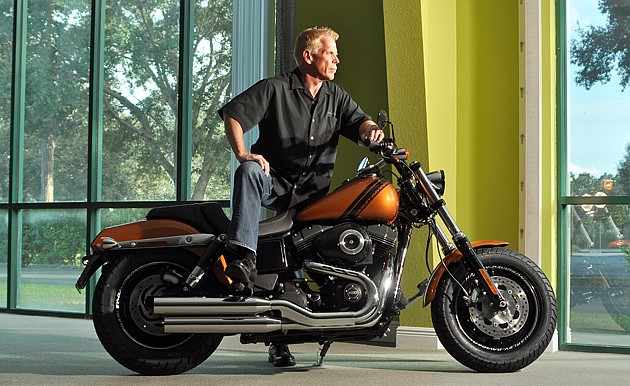- July 26, 2024
-
-
Loading

Loading

In the depths of the recession in 2009, Scott Fischer closed four of the nine motorcycle dealerships he owned.
Then, he made another equally tough decision: He hired a director of human resources.
Why would any business owner hire a human resource director just as the company was downsizing by nearly half? The counterintuitive move says a lot about Scott Fischer's management style and why his Harley-Davidson stores run like a finely tuned engine today.
Fischer, owner of Fort Myers-based Scott Fischer Enterprises, is blunt about what would have happened to his company had he not focused so much on his employees during the downturn: “I wouldn't have made it.”
He remembers the fateful day in September 2009 when he realized he had to close the four dealerships that sold Honda, Yamaha, Suzuki and Kawasaki motorcycles because customers stopped spending completely. “We were in crisis mode,” he recalls.
With the remaining five Harley-Davidson motorcycle dealerships, Fischer decided to use marketing dollars previously spent on advertising and spend them instead on employees and existing customers with appreciation events like happy hours, concerts, training and awards. The goal, he says, was to live up to the company's purpose: Make people's lives better.
The way Fischer sees it, great companies have two attributes: smart and healthy. The smart part of the business is operations and technical abilities. “You can buy all that,” he says, waiving his hand.
That's especially true during the downturn. “When you only focus on the smart side, there's nothing happy about it,” Fischer says.
But the healthy side of the business, such as low turnover and high morale, is more intangible. Fischer says the problem with most companies is they don't focus enough on the organizational health of the business. “It's not measurable,” he says. “How do you measure training?”
For example, Fischer spends thousands of dollars providing free drinks and snacks at his dealerships for customers and employees. Accountants might frown on that expense as wasteful, but Fischer says it's essential to the healthy morale in his stores. “They look at it from the smart side,” Fischer says. “It's so easy to look at spreadsheets.”
When Fischer hosts awards nights at the company stores, he focuses on individual and collective accomplishments that aren't related to sales goals or other financial benchmarks. “We'll never talk about the financial performance of the store,” he says, noting that sales growth is already rewarded with pay.
Instead, the awards are handed out to those who exemplify the spirit of the company's goal of making people's lives better. “You make those people feel special,” Fischer says. In turn, that's how they will treat customers, he reasons.
Communication is key. Fischer writes personal notes to each of his 260 employees for their anniversary with the company and he requires his managers to spend at least 25% of their time speaking one-on-one with employees. He regularly queries his employees anonymously using SurveyMonkey.com to gauge their satisfaction. “Our strength is people engagement,” he says. “There's no end to it. That's become my job.”